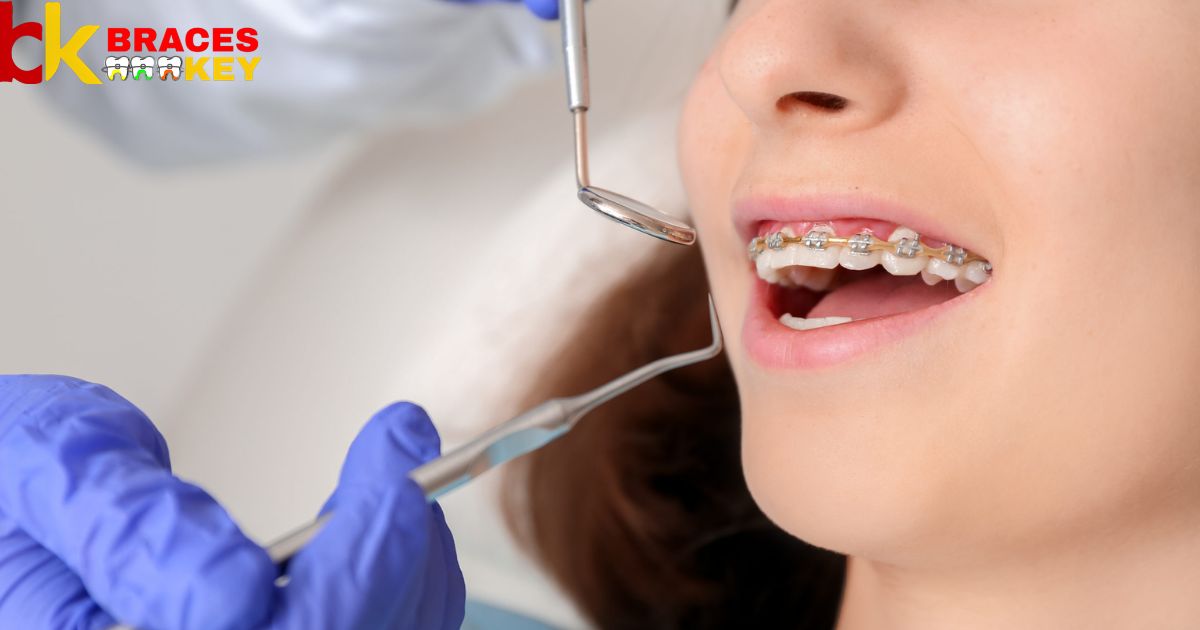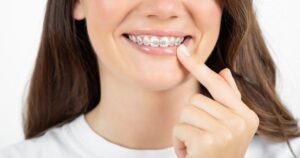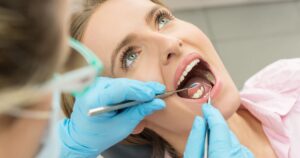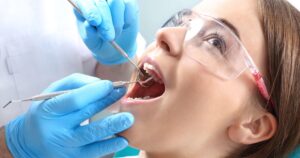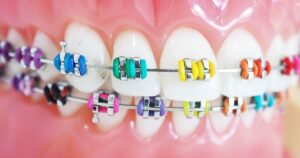Getting braces when you have cavities depends on the severity of the dental issues. Mild cavities can often be treated alongside braces, but extensive decay may require prior dental work to ensure a healthy foundation for orthodontic treatment. Consult with an orthodontist and dentist to determine the best course of action for your specific situation.
Wondering if you can get braces if you have cavities, Explore the possibilities of achieving a straighter smile even with cavities in tow. Learn how to balance dental health and orthodontic goals with expert insights.
Getting braces when you have cavities depends on the severity of the dental issue. Generally, orthodontists prefer to treat cavities before starting orthodontic treatment to ensure a healthier foundation for braces. In some cases, braces may be applied with cavities, but proper oral hygiene and cavity management are crucial during the orthodontic process.
Considering Braces with Cavities
When contemplating orthodontic treatment with braces, it’s crucial to address any existing cavities first. Dental cavities can exacerbate during orthodontic care, as braces can make proper oral hygiene more challenging. Consult with a dentist to resolve cavities before embarking on your journey to a straighter smile.
The Importance of a Dental Checkup
Regular dental checkups are essential for maintaining oral health. These appointments help prevent tooth decay, gum disease, and other dental issues, ensuring a confident and healthy smile. Neglecting checkups can lead to more significant problems and higher treatment costs in the long run.
How Cavities Can Affect Braces
Cavities can pose a significant challenge for individuals with braces. The presence of braces can make it harder to clean teeth effectively, increasing the risk of tooth decay. It’s crucial for those with braces to maintain rigorous oral hygiene to prevent the complications that cavities can introduce during orthodontic treatment.
Consulting Your Orthodontist
Consulting your orthodontist is essential for achieving a healthy, straight smile. They will assess your unique dental needs, discuss treatment options, and create a personalized plan to address any alignment issues. Regular consultations with your orthodontist ensure that you’re on the path to a confident and beautiful smile.
Understanding the Impact of Cavities on Braces

Cavities can significantly hinder the progress of orthodontic treatment with braces. The accumulation of plaque and food particles around braces increases the risk of tooth decay. Regular dental check-ups and diligent oral hygiene are crucial to minimize the impact of cavities and ensure successful orthodontic outcomes.
The Importance of a Dental Checkup
Regular dental checkups are crucial for maintaining good oral health. These appointments help prevent dental problems, detect issues early, and ensure a bright and healthy smile. Neglecting dental checkups can lead to more extensive and costly treatments in the long run.
How Cavities Can Affect Braces
Cavities can pose a significant problem for individuals with braces. The presence of braces can make it more challenging to clean teeth effectively, increasing the risk of tooth decay. It’s crucial for those undergoing orthodontic treatment to maintain rigorous oral hygiene practices to prevent cavities and ensure successful treatment outcomes.
Consulting Your Orthodontist
Consulting your orthodontist is essential for addressing dental concerns. Their expertise ensures personalized treatment plans and guidance for achieving a healthy, confident smile. Regular visits help track progress and make necessary adjustments for optimal results.
Managing Cavities Before Getting Braces
Managing cavities before getting braces is crucial for a successful orthodontic treatment. Cavities can hinder the alignment process and complicate oral hygiene with braces. Regular dental check-ups and prompt cavity treatment are essential to ensure a healthy and beautiful smile during and after orthodontic care.
Addressing Cavities before Braces
Addressing cavities before getting braces is essential for a healthy and successful orthodontic journey. Cavities can worsen during orthodontic treatment, making oral hygiene more challenging. Prioritizing dental health by treating cavities first ensures a strong foundation for a straighter smile.
Preventing Complications During Orthodontic Treatment
During orthodontic treatment, careful monitoring and adherence to the orthodontist’s instructions are crucial to prevent complications. Maintaining proper oral hygiene and following dietary restrictions can help avoid issues like tooth decay or broken brackets.
Cavity Treatment Options
Cavity treatment options encompass a range of procedures to address tooth decay. Dentists commonly use fillings to restore small cavities, while more extensive decay may require dental crowns. In severe cases, root canal therapy becomes necessary to salvage the tooth and eliminate infection.
Braces and Oral Hygiene
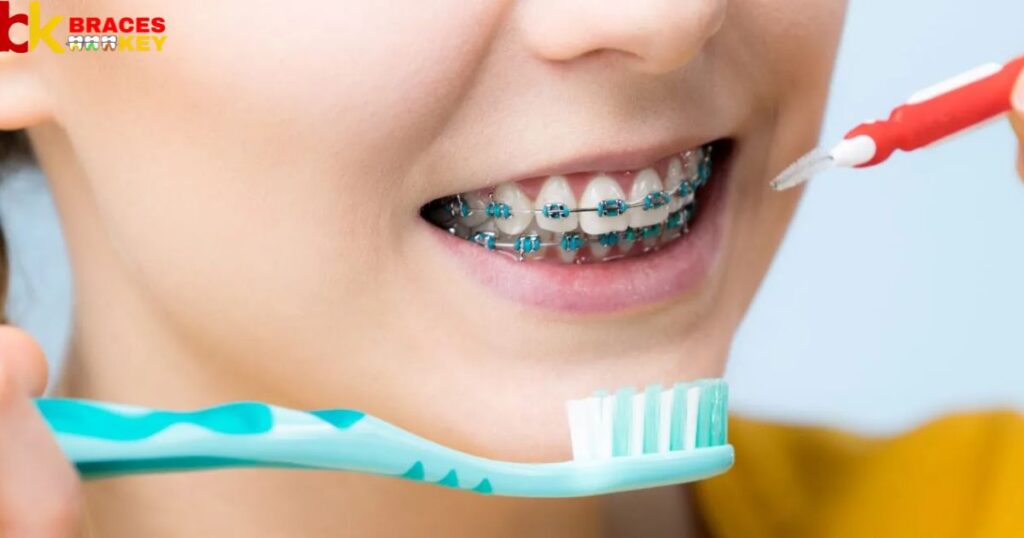
Maintaining proper oral hygiene is crucial for overall health, and this includes caring for your braces. Food particles easily get trapped in braces, making regular brushing and flossing essential to prevent plaque buildup and cavities. A consistent oral hygiene routine is key to achieving a healthy, beautiful smile during and after your orthodontic treatment.
Balancing Cavity Care and Orthodontics
Balancing proper cavity care with orthodontic treatment is essential for maintaining oral health. Regular dental check-ups and effective cleaning routines are crucial, especially when braces or aligners are involved. By prioritizing both, individuals can achieve a healthy, beautiful smile while preventing potential dental issues.
Dietary Considerations with Braces and Cavities
When dealing with braces and cavities, it’s crucial to be mindful of dietary choices. Opt for soft, braces-friendly foods to avoid damaging wires and brackets. Additionally, limit sugary snacks and beverages to prevent further tooth decay and maintain oral health.
Oral Care Routines for Braces and Cavities
Maintaining oral care routines is crucial for individuals with braces and those concerned about preventing cavities. Brushing after every meal, using fluoride toothpaste, and flossing daily are essential habits to preserve dental health while undergoing orthodontic treatment.
Can Braces Be an Option with Existing Cavities
Certainly, braces can often be an option even if you have existing cavities. However, it’s crucial to address the cavities before getting braces, as orthodontic treatment can make oral hygiene more challenging. Your dentist will advise on the best approach to maintain your dental health while undergoing orthodontic care.
Understanding the Impact of Cavities on Orthodontic Treatment
Cavities can significantly hinder the progress of orthodontic treatment. The accumulation of plaque and food particles around braces or aligners creates an ideal environment for tooth decay. Maintaining excellent oral hygiene and regular dental check-ups are crucial to ensure successful orthodontic outcomes while avoiding the complications associated with cavities.
Consulting Your Orthodontist about Cavities
Consulting your orthodontist about cavities is crucial for maintaining oral health during orthodontic treatment. They can provide specialized advice on cavity prevention and recommend suitable oral hygiene practices for braces or aligners.
Addressing Cavities Before Embarking on Braces
Addressing cavities before beginning orthodontic treatment with braces is crucial for maintaining oral health. Untreated cavities can worsen during orthodontic treatment, making it essential to resolve any dental decay beforehand. Consult with your dentist to ensure a healthy foundation for a straighter smile.
FAQ’s
Can I get braces if I have cavities?
Yes, it’s possible to get braces with cavities, but it’s important to address the cavities before starting orthodontic treatment for the best results.
Will having cavities delay my braces treatment?
It may cause some delay, as cavities should be treated first to ensure your oral health is in good shape before braces are put on.
Can I get braces after having cavities filled?
Yes, once your cavities are treated and your orthodontist approves, you can proceed with getting braces for a straighter smile.
How can I maintain oral hygiene with braces and prevent new cavities?
Proper oral hygiene routines and regular dental check-ups are crucial. Your orthodontist can guide you on maintaining a healthy smile while wearing braces.
Conclusion
The decision of whether you can get braces if you have cavities should not be a source of concern. It’s essential to recognize the interplay between oral health and orthodontic treatment. Addressing cavities before starting the braces journey is critical for a successful and comfortable experience. Consultation with your orthodontist is key, as they will assess your oral health and guide you on the best course of action.
While cavities may cause some delays, treating them beforehand ensures your orthodontic treatment can proceed smoothly. Maintaining excellent oral hygiene during your braces journey is vital to prevent new cavities and enjoy a healthier, straighter smile.
